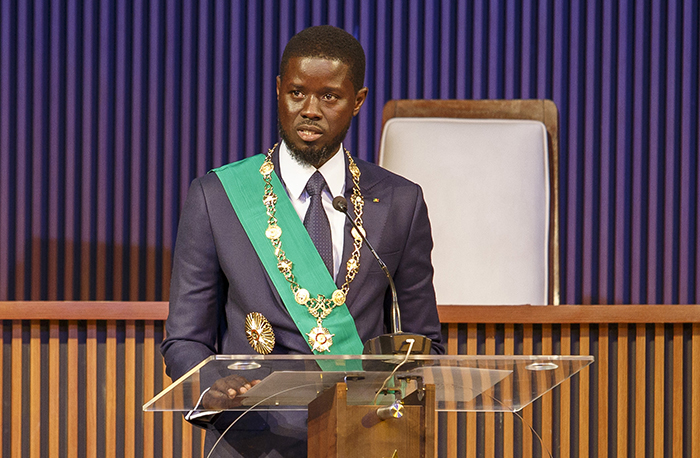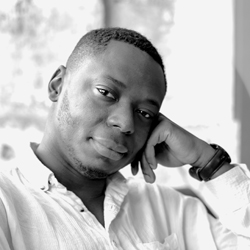Interviews / Africa/s
21 October 2024
Early Parliamentary Elections in Senegal: What Future for the “Government of Change”?

The election of Bassirou Diomaye Faye as Senegal’s president in March 2024 was a political earthquake for the country. His party, Patriotes Africains du Sénégal pour le Travail, l’Éthique et la Fraternité (Pastef), seeks a break from the presidency of outgoing President Macky Sall, focusing on reconfiguring relations with the West—particularly France—and implementing a left-wing economic policy. To carry out his vision of transforming Senegal, the president has called for new parliamentary elections to secure a broad majority.
Is this gamble risky? How has it been received domestically? What would be the consequences of Pastef gaining full control over Senegal’s political direction? And what would the international repercussions be? Insights from El Hadj Souleymane Gassama, known as Elgas, Associate Researcher at IRIS, journalist, writer, and Doctor of Sociology.
On September 13, Senegalese President Bassirou Diomaye Faye announced that early parliamentary elections would be held on November 17. What is the president’s objective with this move? How has this announcement been received by the population and the Senegalese political class?
To understand the situation, it is essential to revisit the composition of the National Assembly under the previous legislature. The outgoing government, led by Macky Sall, held only a slim majority, which created significant challenges. Upon his election in April 2024, Bassirou Diomaye Faye sought to secure a solid majority that would enable him to govern with full latitude and confidently implement his transformative agenda for Senegal.
The dissolution of the National Assembly emerged as an inevitable option to address the threat of a no-confidence motion against the new government. The dissolution was announced just one day before the president’s scheduled policy address, revealing a hastened timeline. This decision has received mixed reactions. Within the presidential majority, it garnered consensus, while the opposition viewed the move as a reversal of course. They criticised the sudden dissolution as bypassing the tradition of a policy address, deeming both the procedure and its justifications questionable.
Neutral observers, however, consider the dissolution to have been somewhat inevitable, arguing that any government requires a strong parliamentary base to govern effectively.
To what extent do these early elections contribute to a reshaping of Senegal’s political landscape?
It is still a bit early to say. What is certain, however, is that the electoral campaign will soon begin. What happened during the presidential elections surprised many observers: a party, Pastef, with only ten years of existence, won the election in the first round (54%), even though its two main leaders were in prison just two weeks before the vote. This is an unprecedented event in the country’s political history.
That said, although the position of outgoing President Macky Sall is declining, his faction still holds some political influence. While the forces supporting him have fragmented, he remains the head of the list for these legislative elections, which is also a remarkable fact. Moreover, the political context is particularly tense as the current regime is already facing some wear and tear: early protests are emerging, linked to the high cost of living and economic and budgetary difficulties. The indicators are therefore in the red, or at least in the orange. This situation could generate some distrust, especially among the youth, who played a significant role in bringing Pastef to power.
There is thus some uncertainty regarding the future composition of the National Assembly. If the dynamic observed during the presidential election holds, it is expected that Pastef will secure a majority, but it remains to be seen whether this majority will be relative or absolute, depending on the behavior of Senegalese voters. It is also not excluded that several groups could be neck and neck, or even that a cohabitation could occur if dissatisfaction is strong enough.
In any case, Senegal’s political landscape is undergoing a major transformation. The contours of this reshaping will become clearer once the election is over and the first trends are known. A majority bloc is emerging, likely facing an opposition stronger than before. During the presidential election, it was almost a referendum against Macky Sall. Now, the stakes are focused on the formation of a government majority, which could change the game. All these factors will need to be taken into account in the analysis of the upcoming results.
What could be the potential impacts of this reshaping on Senegal’s domestic and foreign policy?
On the national level, Pastef has an ambitious project, which it has long advocated and whose outlines were clarified three days ago with the “Horizon 2050” programme for a sovereign and prosperous Senegal. To successfully implement this project without obstacles, it is crucial for the party to win the legislative elections. A parliamentary majority would allow them to prevent the Assembly from blocking laws, thereby enabling the implementation of their programme without significant opposition. The main issue, therefore, is Pastef’s ability to achieve its transformative project, which is based on a true break from the past. At the heart of this rupture is the concept of sovereignty. This concept extends beyond the country’s borders: it has international implications, particularly regarding the government’s desire to renegotiate contracts with several Western partners, such as the European Union and France, in line with what it calls left-wing pan-Africanism.
Securing a strong majority, capable of providing the means to act, would therefore have implications not only for Senegal’s domestic policy, where the new directions taken by the government will quickly become evident, but also for the international stage. Senegal is a key country in the sub-region, playing a central role within the West African Economic and Monetary Union (UEMOA) and the Economic Community of West African States (ECOWAS), and is also recognized for its mediation capabilities. For Pastef, the challenge is therefore twofold: to advance its project at the national level while strengthening Senegal’s position on the international stage.

